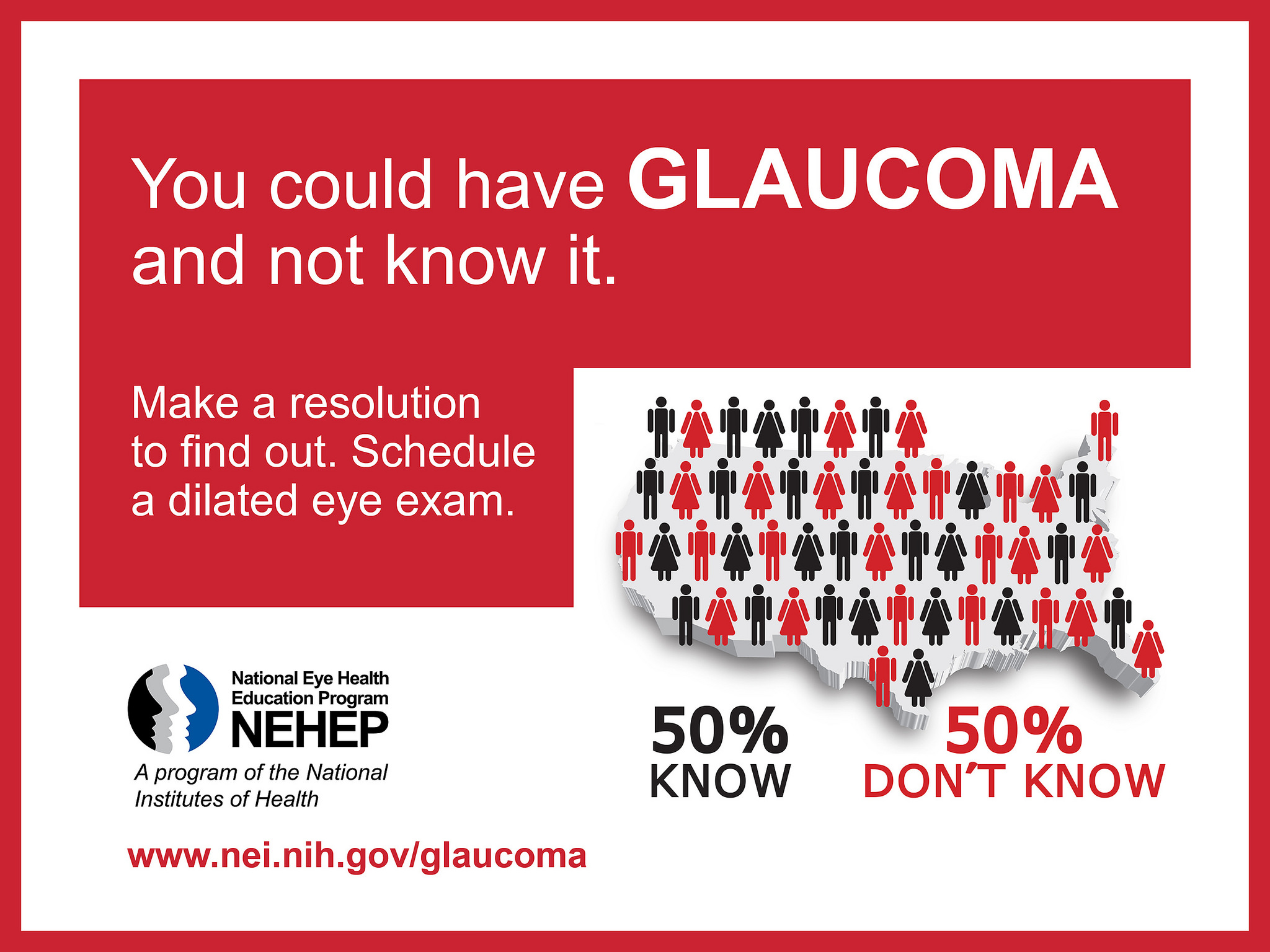
Glaucoma is the world’s leading cause of irreversible blindness.
Currently, more than 3 million people in the United States, and more than 60 million worldwide suffer from glaucoma. To focus attention on the problem, the National Eye Institute has declared January “Glaucoma Awareness Month.” The Houston eye doctors at the Berkeley Eye Center have put together a short FAQ to inform our patients about what glaucoma is, warning signs and risk factors for glaucoma, preventative steps you can take, and treatment options should you be diagnosed with the disease.
What Is Glaucoma?
Glaucoma is a condition that causes fluid to build up in the front of the eye. The pressure caused by this fluid buildup can cause damage to the eye’s optic nerve (also known as ocular hypertension). If left untreated, a patient may experience vision loss and even blindness.
There are several types of glaucoma: open-angle, closed-angle or narrow-angle, low tension, and pigmentary glaucoma.
What Are the Risk Factors for Glaucoma?
You may have a higher risk of developing glaucoma if you:
- Are over 60 years old;
- Are of African, Asian, or Hispanic descent;
- Have a family history of glaucoma;
- Have certain medical conditions, such as diabetes;
- Use steroids;
- Have suffered an eye Injury;
- Have hypertension; or
- Have Myopia (nearsightedness).
Are There Warning Signs That You May Have Glaucoma?
That’s one of the biggest problems with this eye disease. In many cases, there are no warning signs or symptoms in the early stages of the disease. Up to 40% of vision can be lost without a person noticing. The key to catching glaucoma in its early stages is to have regular comprehensive eye exams.
Symptoms of open angle glaucoma can include loss of peripheral vision, blind spots, and tunnel vision. The symptoms for closed angle glaucoma are much more serious and can include: eye pain, blurred vision, nausea, and redness of the eyes.
The symptoms for closed angle glaucoma can appear suddenly in what is called an “attack”; this is a medical emergency that requires immediate treatment.
Can Glaucoma Be Prevented?
We may not be able to prevent glaucoma, but there are steps you can take to detect the disease in its early stages, reduce its progress, and minimize loss of vision.
The most effective way to detect glaucoma in its earliest stages is through regular comprehensive eye exams. To check for symptoms of glaucoma, your eye doctor will perform the following tests:
- Tonometry –measures the inner eye pressure
- Ophthalmoscopy – examines the shape and color of the optic nerve
- Perimetry –determines a patient’s complete field of vision
- Gonioscopy – examines the angle in the eye where the iris meets the cornea
- Pachymetry – measures the thickness of the cornea
You should have your eyes tested for glaucoma:
- Every two to four years before age 40
- Every one to three years from age 41 to 54
- Every one to two years from age 55 to 64
- Every six to 12 months after age 65
If you are part of a high-risk group, you should have your eyes examined every year after age 35.
Regular exercise, knowing your family medical history, taking prescribed medications and wearing protective eyewear can help limit the effects of glaucoma.
What Are Some Treatments for Glaucoma?
Depending on the type and severity of the disease, your eye doctor may recommend medication, special eye drops, traditional surgery (such as a Trabeculectomy), laser surgery (such as Argon Laser Trabeculoplasty) or implants.
Schedule a Glaucoma Eye Exam at the Berkeley Eye Center
Early diagnosis is the key to treating the symptoms of glaucoma. If it’s been a while since you had a comprehensive eye exam, schedule an appointment at the Berkeley Eye Center. Our team of leading Houston optometrists and ophthalmologists have extensive experience diagnosing and treating glaucoma and other conditions that can affect your vision.
